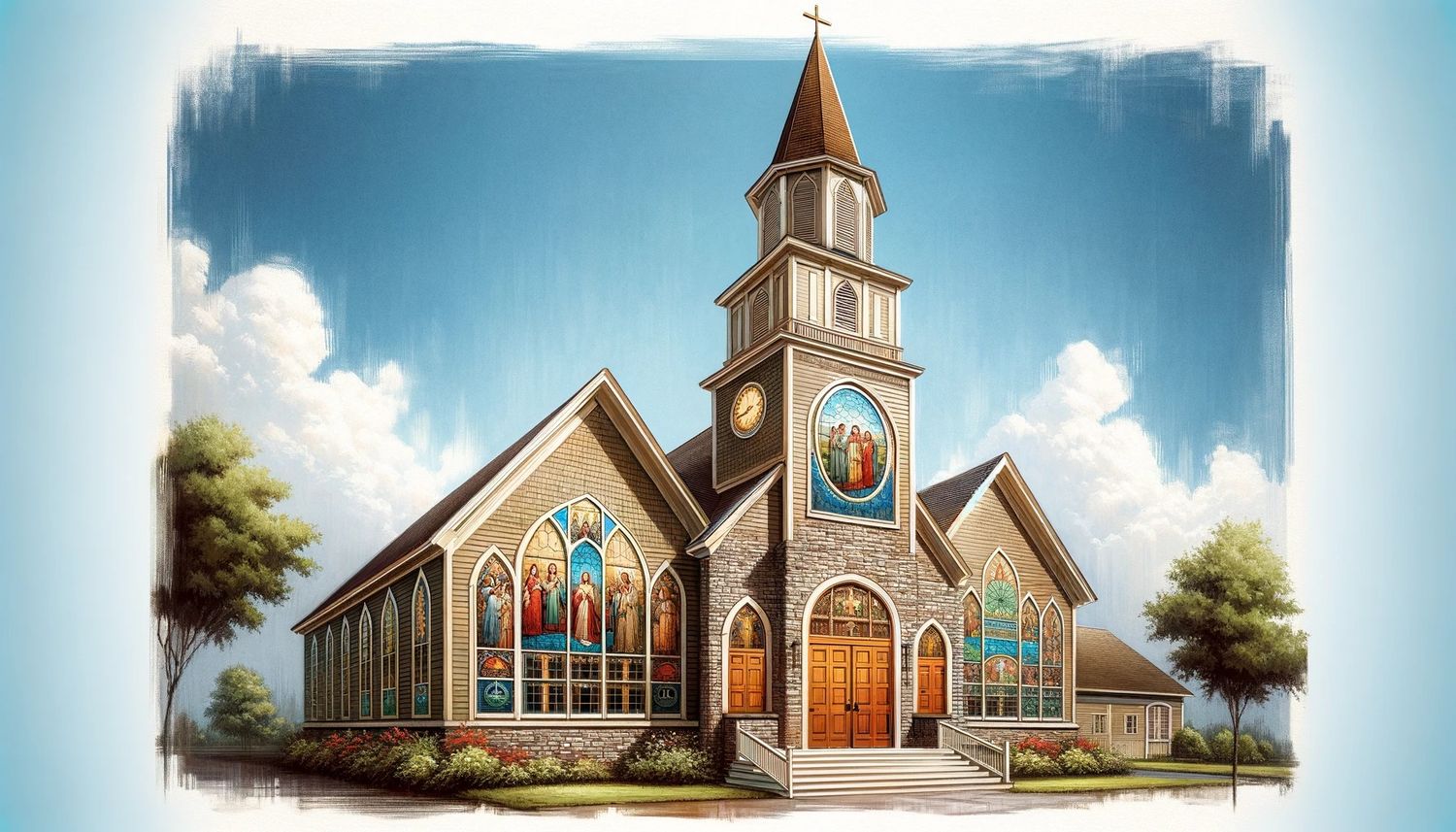Home>Theology and Spirituality>What Are The Two Ordinances Of The Baptist Church


Theology and Spirituality
What Are The Two Ordinances Of The Baptist Church
Published: February 21, 2024
Ericka Andersen, an editor at Christian.net, expertly merges digital strategy with content creation, focusing on faith and societal issues. Her communication skills enhance the platform's engaging narratives, fostering meaningful dialogue on belief's impact on society.
Discover the significance of the two ordinances of the Baptist Church and their role in theology and spirituality. Explore their importance and impact today.
(Many of the links in this article redirect to a specific reviewed product. Your purchase of these products through affiliate links helps to generate commission for Christian.net, at no extra cost. Learn more)
Table of Contents
Introduction
The Baptist Church, like many other Christian denominations, observes certain rituals and practices that hold deep spiritual significance. Among these are the two ordinances of the Baptist Church: baptism and the Lord's Supper. These ordinances are not merely symbolic rituals but are considered sacred acts that hold profound spiritual meaning for members of the Baptist faith.
Baptism and the Lord's Supper, also known as communion, are central to the life of a Baptist believer. They serve as visible signs of the believer's faith and commitment to Christ and are deeply rooted in the teachings of the New Testament. Understanding the significance and purpose of these ordinances is essential to comprehending the Baptist faith and its practices.
In the following sections, we will delve into the theological and spiritual aspects of these two ordinances, exploring their historical context, biblical foundations, and their role in the life of the Baptist Church. Through this exploration, we aim to gain a deeper understanding of the profound spiritual truths encapsulated within these sacred practices.
Baptism
Baptism holds a central place in the life of the Baptist Church and is considered one of its two primary ordinances. It is a deeply symbolic and spiritually significant rite that signifies the believer's identification with the death, burial, and resurrection of Jesus Christ. The act of baptism is rooted in the teachings of the New Testament and is seen as a public declaration of one's faith in Christ and commitment to a life of discipleship.
In the Baptist tradition, baptism is reserved for those who have made a personal profession of faith in Jesus Christ. This distinguishes it from infant baptism practiced in some other Christian denominations. For Baptists, baptism is a conscious and voluntary act undertaken by individuals who have reached an age of understanding and are able to make a personal decision to follow Christ.
The mode of baptism is another distinctive feature of the Baptist tradition. Immersion, wherein the believer is fully submerged in water, is the preferred mode of baptism. This immersion symbolizes the believer's union with Christ in His death and resurrection, as well as the cleansing of sin and the emergence into newness of life. The act of immersion is seen as a powerful representation of the believer's spiritual rebirth and the washing away of sin through the redemptive work of Christ.
Baptism also serves as an initiation into the community of believers, signifying the individual's incorporation into the body of Christ. It is a public testimony of one's faith and a commitment to live in accordance with the teachings of Jesus. Through baptism, believers publicly declare their allegiance to Christ and their willingness to follow His teachings and example.
Furthermore, baptism is viewed as an act of obedience to Christ's command as recorded in the Great Commission (Matthew 28:19-20). In this passage, Jesus instructs His disciples to baptize new believers in the name of the Father, the Son, and the Holy Spirit, thereby emphasizing the significance of baptism in the life of the Church.
In summary, baptism in the Baptist tradition is a deeply symbolic and spiritually profound ordinance that signifies a believer's faith in Christ, their identification with His death and resurrection, and their commitment to a life of discipleship. It is a public declaration of one's faith and an act of obedience to Christ's command, serving as a powerful testimony of the believer's union with Christ and incorporation into the community of faith.
The Lord's Supper
The Lord's Supper, also known as communion, holds a central and sacred place within the Baptist Church. It is one of the two primary ordinances observed by Baptists, the other being baptism. The Lord's Supper is a deeply meaningful and symbolic practice that commemorates the sacrificial death of Jesus Christ and celebrates the new covenant established through His blood.
At the heart of the Lord's Supper is the act of partaking of bread and wine, which symbolize the body and blood of Christ, respectively. This act of partaking is rooted in the Last Supper, a significant event in the life of Jesus and His disciples, as recorded in the Gospels. During this final meal with His disciples, Jesus instituted the practice of the Lord's Supper, instructing His followers to partake of bread and wine in remembrance of Him.
For Baptists, the observance of the Lord's Supper is a solemn and reverent occasion. It serves as a time of reflection, gratitude, and spiritual renewal as believers come together to remember the sacrificial death of Christ and the redemptive significance of His atoning work on the cross. The act of partaking in the elements is a tangible expression of the believer's participation in the benefits of Christ's sacrifice and the spiritual nourishment derived from communion with Him.
The Lord's Supper also serves as a unifying practice within the community of believers. As participants partake of the bread and wine, they are reminded of their shared faith in Christ and their common bond as members of the body of Christ. This act of communal participation fosters a sense of unity, fellowship, and mutual love among believers, emphasizing the interconnectedness of the Church as the family of God.
Furthermore, the observance of the Lord's Supper is characterized by a spirit of self-examination and repentance. Prior to partaking of the elements, believers are encouraged to examine their hearts, confess their sins, and seek reconciliation with God and fellow believers. This introspective aspect of the Lord's Supper underscores the importance of personal holiness, spiritual renewal, and a right relationship with God and others.
In summary, the Lord's Supper is a deeply significant and spiritually enriching ordinance within the Baptist tradition. It serves as a poignant remembrance of Christ's sacrificial death, a symbol of unity and fellowship within the body of believers, and a catalyst for personal reflection, repentance, and spiritual nourishment. Through the observance of the Lord's Supper, Baptists reaffirm their faith in Christ, celebrate the new covenant, and express their longing for the ultimate fulfillment of God's kingdom.
Conclusion
In conclusion, the two ordinances of the Baptist Church, namely baptism and the Lord's Supper, hold profound significance in the life of believers. These sacred practices are not merely symbolic rituals but are deeply rooted in the teachings of the New Testament and carry immense spiritual and theological weight.
Baptism, as a public declaration of faith and discipleship, symbolizes the believer's union with Christ in His death and resurrection. It serves as a powerful testimony of spiritual rebirth, the forgiveness of sins, and incorporation into the community of believers. The act of immersion in baptism represents the cleansing and renewal experienced through the redemptive work of Christ, emphasizing the believer's commitment to follow Christ's teachings and example.
On the other hand, the Lord's Supper, or communion, is a solemn remembrance of Christ's sacrificial death and the establishment of the new covenant. Through the partaking of bread and wine, believers express their participation in the benefits of Christ's atoning work and experience spiritual nourishment through communion with Him. The observance of the Lord's Supper also fosters unity, fellowship, and mutual love among believers, emphasizing the interconnectedness of the Church as the family of God.
These ordinances not only serve as foundational practices within the Baptist tradition but also deepen the spiritual journey of believers, reinforcing their faith, commitment, and sense of community within the body of Christ. As Baptists continue to observe these ordinances, they reaffirm their identity as followers of Christ and their anticipation of the ultimate fulfillment of God's kingdom.
In essence, the two ordinances of the Baptist Church encapsulate the core tenets of the Christian faith, serving as visible signs of believers' commitment to Christ, their participation in the redemptive work of Jesus, and their unity within the community of faith. These practices continue to shape the spiritual identity and communal life of the Baptist Church, embodying the timeless truths and enduring significance of the Christian gospel.















